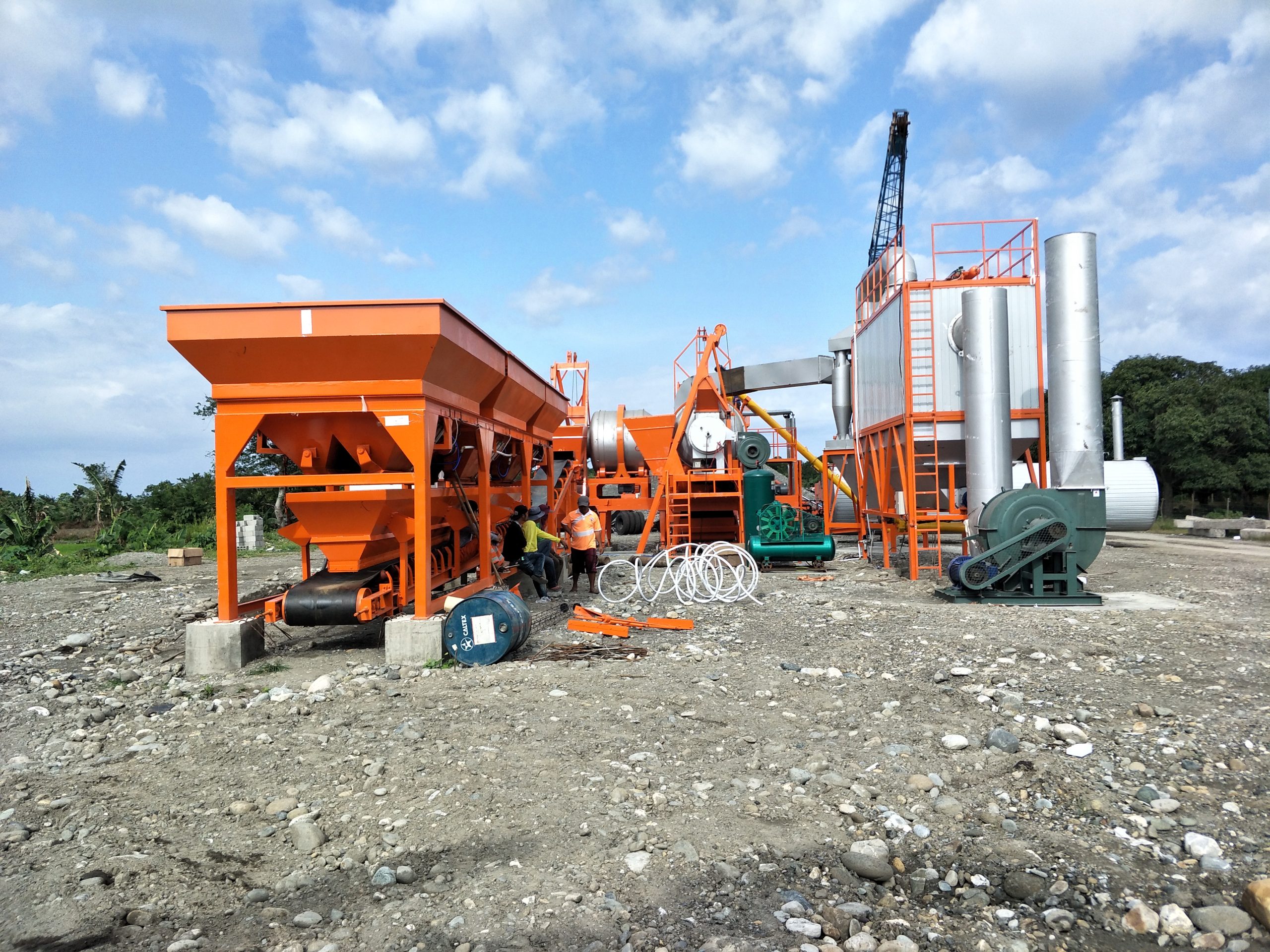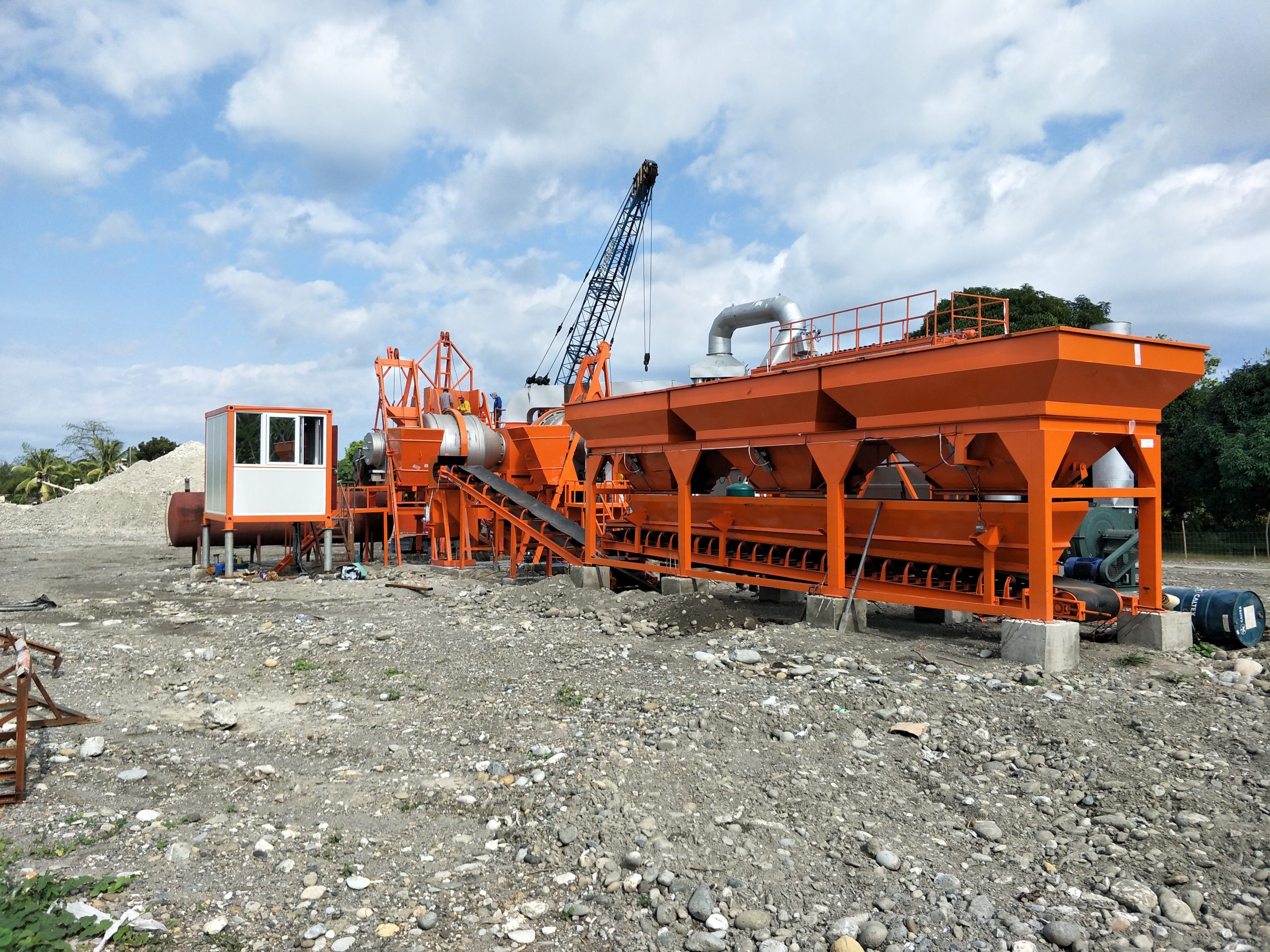An Asphalt Plant is a piece of construction equipment used to create roads. Several types of asphalt plants are available, including mobile plants, batching and hot mix asphalt plants, and cold central plant recycling. These types of plants all perform similar tasks, including mixing asphalt and distributing it. For more information on each type of asphalt plant, read the following paragraphs. To find the right type of plant for your needs, read on! Here are the differences between asphalt drum mix plants and batching plants.
Mobile asphalt mixing plant
There are several factors to consider when choosing an asphalt plant. The size of the project, the volume target per day, and the number of tons per hour are all important factors. Stationery or mobile asphalt plants are better suited for bigger projects, while a mobile plant is best suited for smaller jobs. Listed below are some of the main factors to consider when choosing an asphalt plant. For a project of this size, a stationary hot mix plant may be the most suitable option.

The MAPY series is a mobile asphalt mixing plant that is based on the SAP series. It is equipped with a trailer and chassis for easy mobility. The unit has PLC controls for accurate installation and maintenance. It can be dismantled in as little as seven days. In addition, it is designed to meet the needs of small and medium sized projects. It can be customized to meet customer requirements. It can be set up to dry and mix materials simultaneously or only mix.
Asphalt drum mix plant
The main component of an asphalt drum mix plant is the heating and drying system. This system ensures that cold aggregates are sufficiently dry to blend with the asphalt. The heating and drying system consists of two main devices: a dryer drum and a burner. Dryer drums are insulated, which reduces heat loss and energy consumption. Burners are usually made of fuel or coal. They are equipped with automated safety controls. Besides, they can be operated manually or semi-automatically.
These asphalt mixers also have computerized controls to control the mixing process. The process of adding RAP can be controlled with the help of various parameters, such as belt speed and liquid asphalt flow. Drum mix plants are also designed to minimise light oil emissions. This means less steam is released into the atmosphere. While RAP can be problematic in some applications, manufacturers have made modifications to minimize emission problems. One way to counter emissions is to install a double or triple drum mix plant.

Hot mix asphalt batching plant
A hot mix asphalt batching plant can either be mobile or stationary. The two types of asphalt plants for sale are classified based on their capacity and method of disposal. A batching plant, as the name suggests, produces hot mix asphalt by adding and discharging aggregates. Continuous batch plants weigh aggregates and bitumen and discharge the finished asphalt into storage silos. There are a few differences between batch and continuous asphalt batching plants, though most batch types have the same basic function.
The mixing process involves the use of a drum and a conveyor belt. Both types of mixing equipment use the same process of mixing materials to produce a hot mix asphalt mixture. A drum and belt conveyor are used to send hot aggregates to the drying drum. Another feature of this type of asphalt mixing plant is that it can mix different grades of aggregates at the same time. Afterwards, the heated aggregates are sent to a conveyor belt, where they are separated into different specifications.
Cold central plant recycling
Many urban areas have excess amounts of recycled asphalt pavement (RAP). By recycling this material, asphalt contractors can produce a new base mix that can be used for a variety of purposes. In addition to recycling old asphalt pavement, cold plant technology also creates high percentages of stockpiled RAP. The process saves taxpayers money because it does not require additional transportation. However, it must be used properly and at the right time.
To evaluate the structural contribution of mobile asphalt plant for sale recycling, two full-scale pavement sections were constructed at the National Center for Asphalt Technology Test Track in 2012. The recycled asphalt pavement was made using 100% reclaimed asphalt with foamed agglomerates. In both test sections, the cold recycled material performed well and did not exhibit a decrease in ride quality or traffic volume. Additionally, frequent deflection tests demonstrated similar responses to temperature as conventional asphalt concrete.